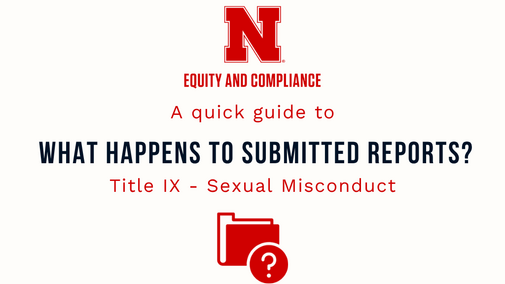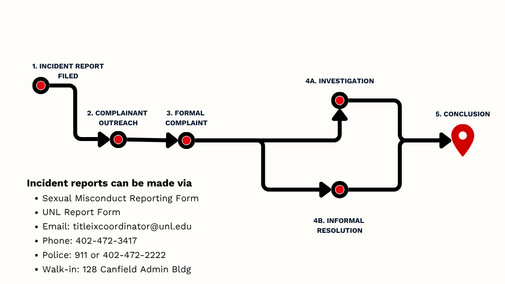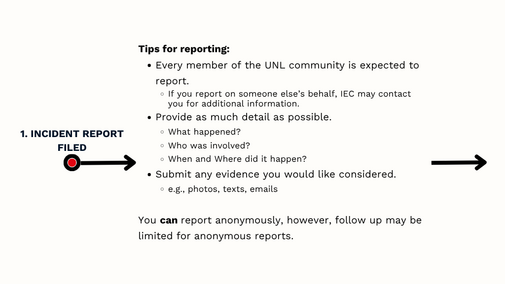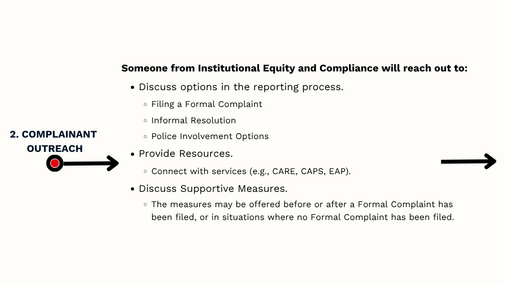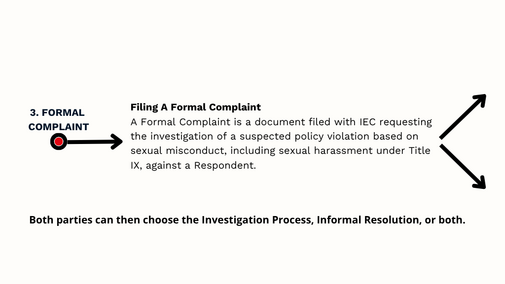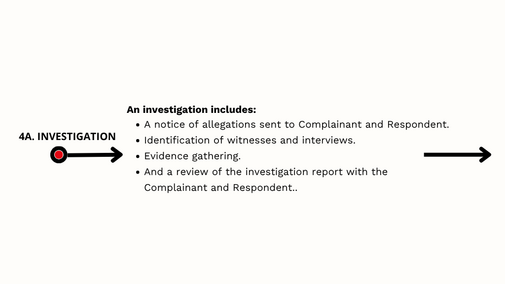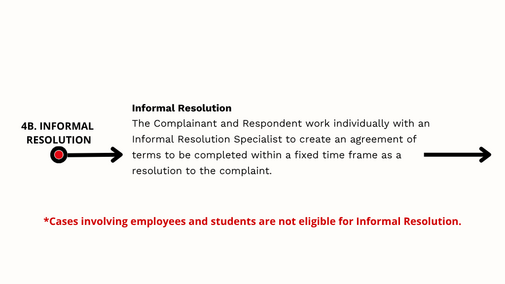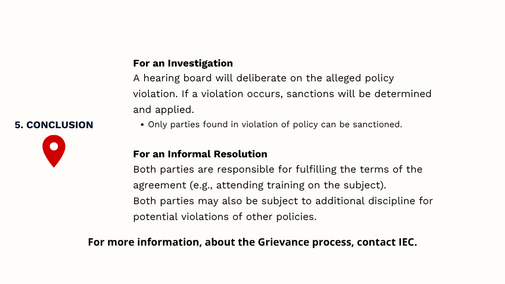Policies & Procedures
Click to read the complete documents
Reporting Expectations for All Individuals
All individuals are expected to promptly report conduct that may violate the University’s Sexual Misconduct Policy to the University. Although the University does not limit the time frame for reporting sexual misconduct to promote timely and effective review, the University strongly encourages individuals to report possible sexual misconduct within one hundred and eighty (180) calendar days of the last occurrence of the concerning conduct. A report made after one hundred and eighty (180) days may make it more difficult to gather relevant and reliable information.
In addition, all individuals are expected to report conduct that may also violate criminal law to both the Title IX Coordinator and local law enforcement. These processes are not mutually exclusive and both may happen simultaneously or at different times.
University of Nebraska Board of Regents Policies
Reporting sexual misconduct to Institutional Equity and Compliance (“IEC”) does not automatically initiate a formal complaint or investigation. The individual who may have experienced sexual misconduct retains the choice to pursue a complaint and an investigation. Supportive measures are available to individuals subjected to sexual misconduct regardless of whether they file a complaint.
Confidential Resources Exemption
This provision of the policy does not apply to individuals who have been designated as confidential resources.
Officials with Authority
Officials with Authority are required to report all incidents of sexual misconduct of which they are made aware. Official with Authority means an official of the University who has authority to institute corrective measures for sexual misconduct on behalf of the University.
The following individuals are Officials with Authority:
- President
- Chancellors
- Provosts/Vice Presidents
- Vice Chancellors
- Campus Title IX Coordinators
Interim Chancellor | |
|---|---|
Executive Vice Chancellor, | |
Vice Chancellor, | (Interim) |
Vice Chancellor, | (Interim) |
Vice Chancellor, | (Interim) |
Vice Chancellor, | |
Vice Chancellor, | (Interim) |
Title IX Coordinator |
Other Reporting Outlets
University Incident Reporting System

